From Petrol to Electric: Millennials are Making the Switch for an Eco-friendly Ride
From Petrol to Electric: Millennials are Making the Switch for an Eco-friendly Ride
Driven by the wish for a more sustainable future, drivers around the world are increasingly choosing electric vehicles over their gas-guzzling counterparts.
Transformational technologies, demographic shifts and changing consumption patterns are reshaping our collective future. This article is part of Future, Now, an ongoing series that looks at how such global trends and innovative technologies can build a better, smarter and more sustainable world.
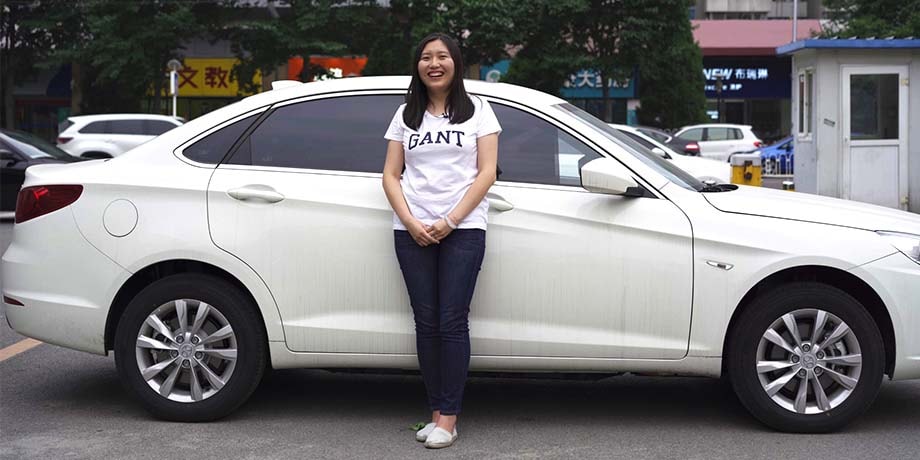
Despite driving an electric vehicle (EV) for over a year, Guo Yingying, 31, who is based in Beijing, admits that buying an EV was not her first choice.
She recalls bidding for a licence plate for a traditional petrol car — a process imposed on all potential petrol car owners by local authorities looking to reduce carbon emissions across the sprawling Chinese metropolis.
However, the first-time mother found herself becoming increasingly eco-conscious shortly after giving birth. “I started becoming more aware about environmental problems because I want to give my children a better living environment and let them grow up healthy,” she says with a smile.

Beijing-based Guo Yingying made the switch to driving an EV after becoming more aware about environmental problems
Air Pollution Around the World
Such concerns aren’t unfounded. According to the World Health Organisation (WHO), vehicle emissions are a leading source of greenhouse gas and a huge contributor to urban air pollution. The latter increases the risk for heart and lung diseases, cancer and birth defects
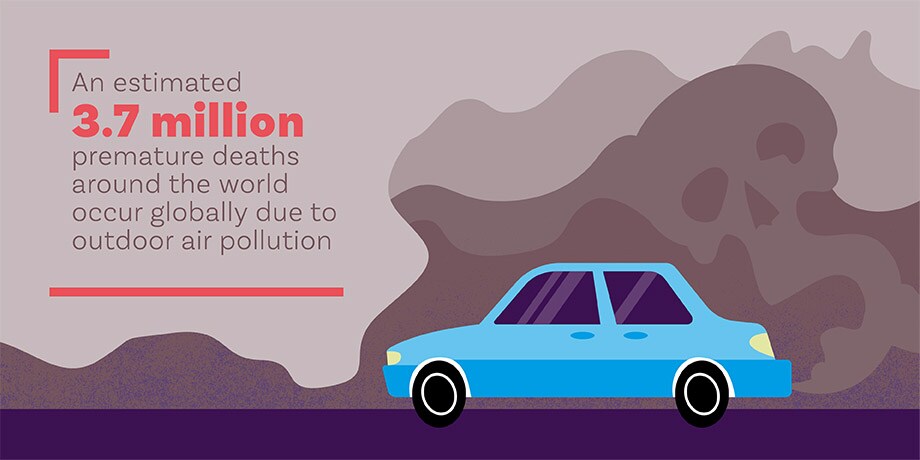
Data source: World Health Organisation, www.who.int/sustainable-development/transport/health-risks/air-pollution/en
With no exhaust emissions, EVs could cause “virtually no global warming emissions” — so long as they are charged entirely with renewable energy sources such as wind and solar power, reports the Union of Concerned Scientists (UCS). The science-based non-profit group points out that even EVs charged using the “dirtiest” and most carbon-intensive energy sources, such as coal, still produce 19 percent less greenhouse gas emissions than the average petrol car.
Eco-consciousness Leading the Way
Overcoming an initial slow uptake, the sales of EVs have recently surged around the world; more than one million were sold worldwide in 2017 — an increase of 54 percent from 2016, according to the International Energy Agency (IEA).
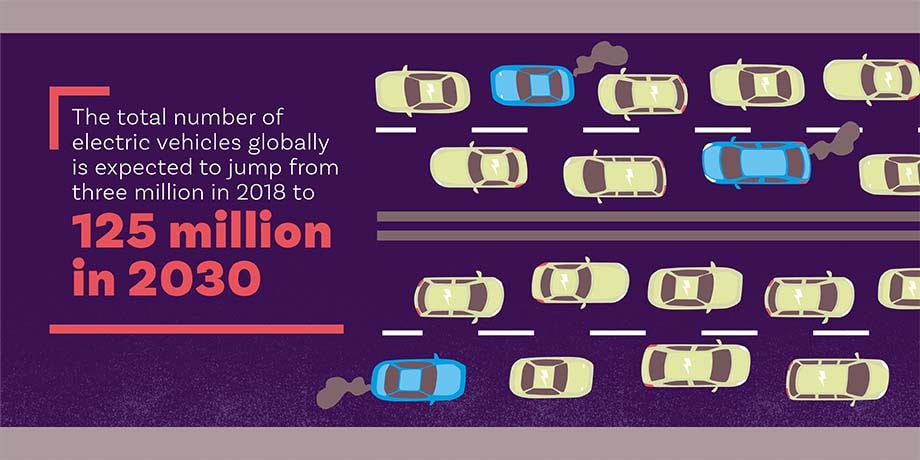
Data source: The International Energy Agency, Strong Policy and Falling Battery Costs Drive Another Record Year for Electric Cars, May 2018
The driving group behind this spike are millennials, an increasingly eco-conscious consumer class. The top three EV markets — China, the US and Norway — all boast large numbers of eco-conscious consumers.
One in five Americans are now interested in purchasing an EV, according to a survey by the American Automobile Association. Of these consumers, some 80 percent explained that the biggest reason they are considering a switch to driving an EV is because of their concern for the environment.
Millennials are even touted as change-makers who are willing to make major life changes for the sake of bettering the environment. In fact, one survey found that they are more interested in tackling the problem of climate change holistically, instead of just focusing on recycling issues.
Some millennials credit their generation’s increased awareness of sustainability to the internet. Peter Phong, 35, a US-based project manager at an architectural design company, in particular, believes that this paradigm shift towards sustainability is happening now because “society in general has become more educated”. He likens this to the declining social acceptance of smoking as the public’s awareness of the negative consequences of smoking increases.
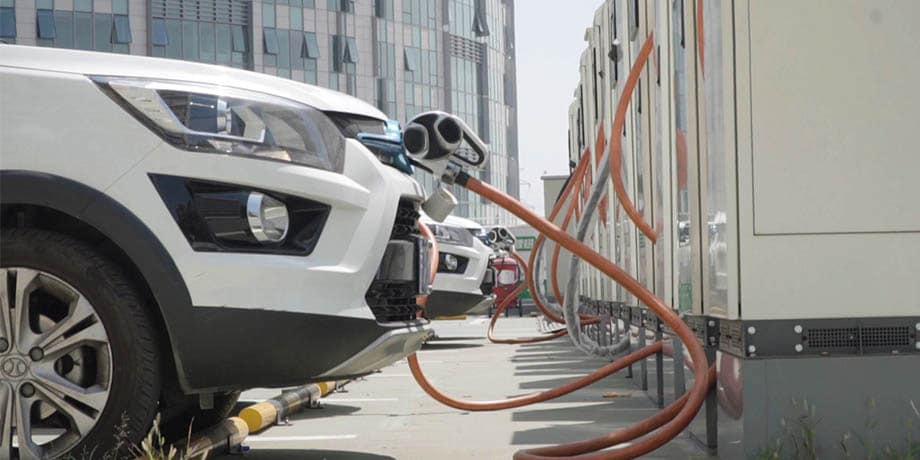
In China, there are over 487 EV manufacturers vying for a share of the fast-growing EV market
Carmakers are falling over themselves to seize this opportunity: around the world, big industry names including Volkswagen AG and Ford Motor Co have invested a total of at least US$90 billion in manufacturing pure-electric and hybrid vehicles. In China alone, there are 487 EV manufacturers (and counting) vying for a share of the fast-growing market.
Roadblocks Ahead for Some Drivers
Beyond increased interest in eco-conscious consumption, what differentiates top EV markets from others are the generous incentives to promote ownership.
Shanghai-based EV maker NIO hopes to bring back clear, blue skies and a greener future for China
In China, for instance, the annual vehicle purchase tax levied on all vehicles in the country is waived for EV drivers. In addition, as of 2016, they are also eligible for a central government subsidy of up to RMB55,000 (S$10,900) for a battery-powered EV and RMB30,000 (S$5,970) for each plug-in hybrid EV, on top of subsidies from local municipal authorities.
Not all markets, however, adopt this model for championing the EV.
In land-scarce Singapore, where EVs make up a mere 0.09 percent of the 574,443 passenger cars on the roads as of 2017, the government envisions a “car-lite” future where residents have a low reliance on private vehicles, opting for public transport instead.
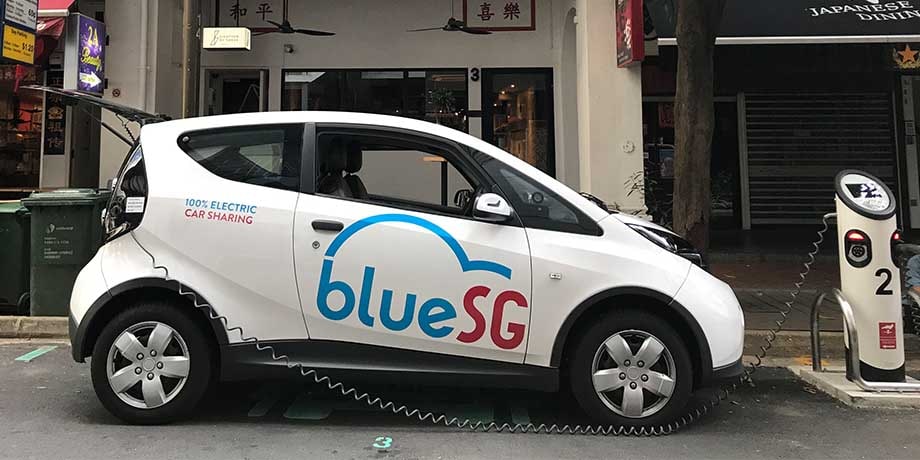
Instead of doling out generous incentives to encourage the ownership of private EVs, Singapore is supporting another form of sustainable transport: car-sharing
So instead of heavily incentivising the sale of private EVs in the country (remember Tesla CEO Elon Musk’s famous tweets?), Singapore is supporting another form of transport: car-sharing. Singapore-based BlueSG provides the nation’s first and largest EV car-sharing service, with 100 charging stations and 393 charging points across the island for its fleet of 230 EVs. Since launching in December 2017, the car-sharing company today boasts a total of 17,000 registered members.
Singapore-based digital content specialist Adli Jumat, 25, says he is a BlueSG user not because he supports sustainability initiatives, but rather, because of its affordability.
"I would want to be [more eco-conscious] if the products or services I consume put the environment first. I think businesses should have the onus to lead this mindset change, facilitated by governments," says Adli, who acknowledges that cost still matters most when it comes to his purchases.
Adli isn’t alone. Despite increased consumer eco-consciousness, the majority of US consumers online, for example, still balk at the price of EVs, which tend to be more expensive than the average car that runs on fossil fuel.
Drivers in Singapore who still need a car may be put off by the higher upfront cost of owning an EV in the country. While Adli is satisfied with the BlueSG service for now, he may consider purchasing an EV in the future — but only if more policies are introduced to encourage the ownership of EVs over petrol cars.
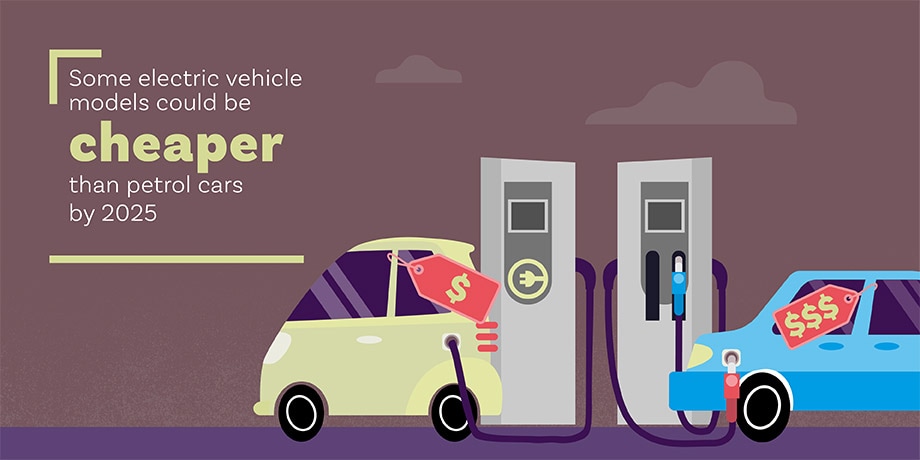
Data source: Bloomberg, Electric Cars May Be Cheaper Than Gas Guzzlers in Seven Years, March 2018
Thankfully, EVs are poised to become much more affordable in the future. A report by Bloomberg New Energy Finance forecasts that some EV models will cost the same as their petrol-guzzling counterparts as soon as 2024, as technology advancements and demand drive down the cost of batteries, a key component of electric vehicles.
William Li, founder and CEO of Shanghai-based automaker NIO, acknowledges that high costs continue to pose challenges for EV makers currently, but he is optimistic.
“With the lowering cost of batteries, EVs will eventually gain a greater competitive advantage over time,” he tells T-Digital in an exclusive interview.
“I think the popularisation of EVs may come even earlier than we expect.”
Temasek is an investor in NIO.


